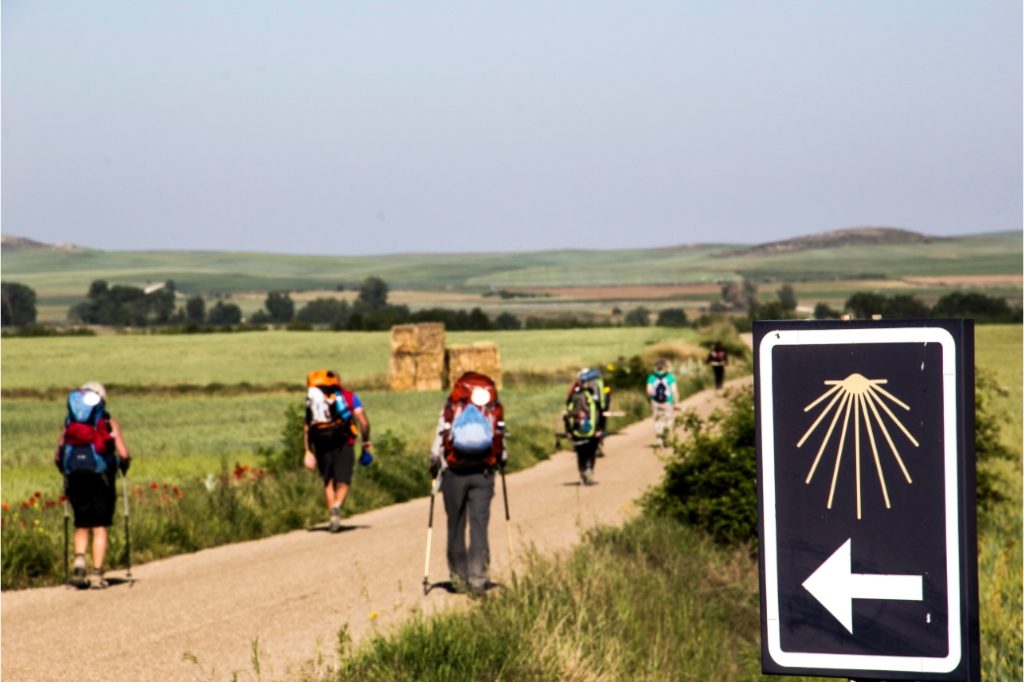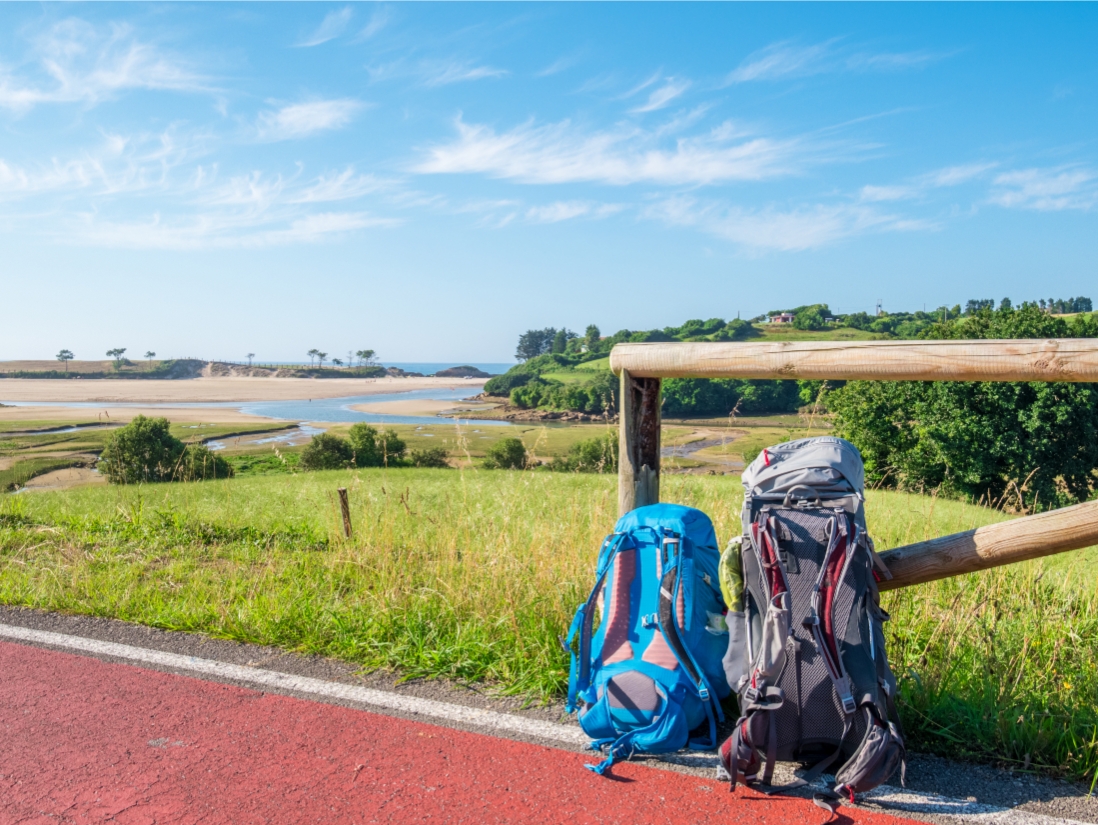If you’re about to pack for the Camino, here are some essentials that shouldn’t be missing from your packing list. You will find for sure many guides and suggestions on what to take with you on the Camino, but in our experience, these are the ones that are likely to be missed from any Camino packing list:
If you don’t need a corkscrew and bottle opener (or the thing for getting stones out of horses’ hooves), then a miniature Swiss Army knife is well adequate.

Sleeping bags are essential. Many refugees don’t keep blankets and insist that pilgrims have their own ‘sacks’.
A lightweight, powerful headtorch is very useful.
Take a toilet roll: remove the cardboard roll and flatten it. Some albergues run out, so be prepared!
A bandanna can serve as a headscarf, hat, eyeshade, tablecloth, washcloth, and cleaning cloth for grubby washbasins. A lightweight sarong can serve as a dressing gown, bathrobe, makeshift pillowcase, lightweight sleeping sheet, and sunshade.
Dental floss is helpful as a heavy-duty sewing thread. Similarly, a small quantity of Sellotape and string, plus a few safety pins and cable ties, are also helpful for improvisation and repairs.
When choosing your clothing, consider how easily you can handwash it and how quickly it will dry – important in Galicia, where the atmosphere is wetter.
Don’t overstock on toiletries and pharmacy items – they can all be obtained in most villages along the route.
Plastic bags help protect your belongings from rain and can double as a ‘handbag’ for your valuables when you have finished walking for the day.
Consider carefully whether you need to take a map – especially if you have a guidebook with sketch maps. You can have it saved on your phone.
When pruning your packing list, concentrate on containers and papers/books.
Be absolutely ruthless about cutting down on the weight you carry. Don’t forget that you might need to add two or three kilograms of water plus an allowance for picnic food to the weight of your pack.
Do you need guidance?
If you need help planning your Camino, you can consider taking an organized or self-guided tour, our trusted partner at Follow the Camino can assist you in this regard.
‘If you haven’t got it, you will have to make do without it.’

